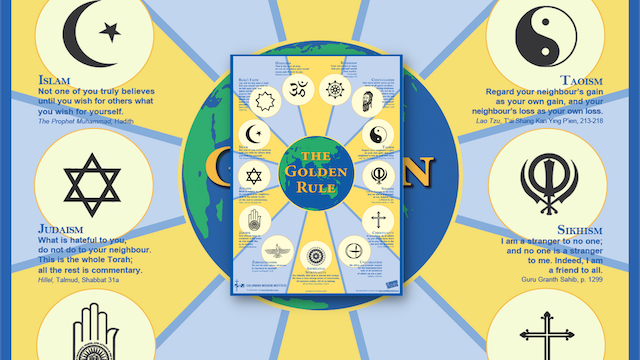Friday Reflection: Cultivating empathy - A crucial element for fostering peace

By Muneeb Nasir
Our global landscape is dangerously divided, and many perceive this era as one of the most perilous in recent history. Numerous policies, practices, and ways of life no longer appear sustainable, neglecting the fact that we are all interconnected neighbors.
In the face of these challenges, we stand at a crossroads.
We can opt to be passive bystanders, resigning ourselves to despair as we watch events unfold. Alternatively, we may choose an aggressive stance, aligning with exclusive tendencies prevalent in various religious and secular traditions worldwide.
Yet, there exists a third path—one of courage. We can opt to alter our course, fostering relationships and partnerships grounded in principles such as mercy, compassion, empathy, respect, justice, and an impartial concern for all.
At the forefront of our generation's urgent tasks is the construction of a global community where individuals of all races, nations, and religions coexist in justice and peace.
Unfortunately, religion, which should contribute significantly to this endeavor, is often perceived as part of the problem. Extremist voices frequently overshadow those advocating kindness, forbearance, and mutual respect.
In this fractured world, there is a pressing need for a renewed focus on mercy and compassion. Compassion, a principled commitment to understanding the perspectives of others, lies at the core of truly ethical and religious systems.
As the Indian author Arundhati Roy asserts, "Empathy may be the single most important quality that must be nurtured to give peace a fighting chance."
Historical leaders who navigated tumultuous times emphasized compassionate living. They argued that empathy and a genuinely compassionate ethic not only served people's best interests but were also essential for fostering justice and peace.
Compassion is eloquently encapsulated in the teachings of Prophet Muhammad, peace be upon him, who emphasized loving for others what one loves for oneself -"None of you truly believes (in God) until he loves for his brother what he loves for himself."
This notion mirrors the Golden Rule recognized by various faiths: "Do unto others as you would have them do unto you," and "Do not treat others as you would not like to be treated yourself."
Compassion extends beyond theory or passivity; it intertwines with forgiveness, pardon, and the ability to humanize innocent individuals even in times of conflict.
Mercy, as an expression of compassion, involves averting evil and harm. It is not solely reactive but also possesses a proactive dimension, seeking to set things right, break with the past, and foster new beginnings where goodness can flourish.
A commitment to compassion compels us to live in the world with an awareness of our shared Earth and its resources. It insists that, recognizing our common humanity, we treat every creature with justice, equality, and respect.
Pope Francis recently reminded us that we always value the life and dignity of all humans and that civilian victims of the recent war are not mere "collateral damage" but individuals with identities, stories, and aspirations.”
As Confucius urged, through diligent practice we come to appreciate our profound interdependence, becoming fully humane "all day and every day."
